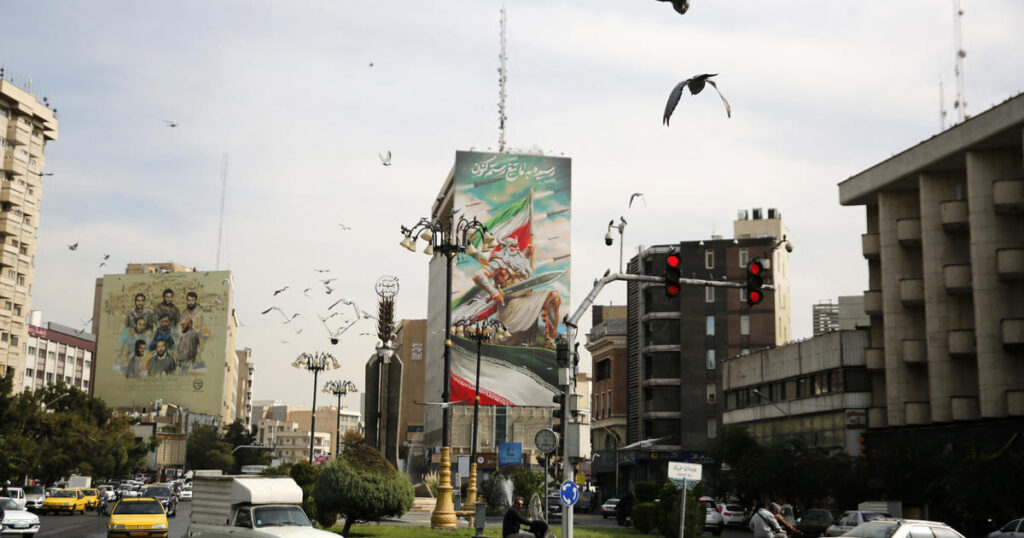of israel Pre-dawn airstrikes against Iranian military targets There were mixed reactions at home and abroad in retaliation for the Islamic Republic’s barrage of ballistic missiles at Israel earlier this month.
Explosions were also heard in the Iranian capital Tehran, but Iran claimed the airstrike caused only “limited” damage and Iranian state media downplayed the attack.
This attack risks bringing the archenemies closer to all-out war under these circumstances. Violence intensifies across the Middle EastThere, Iranian-backed extremist groups, including Hamas in Gaza and Hezbollah in Lebanon, are already at war with Israel.
The United States, which had been forewarned about the attack, called for no further retaliation, while Britain and Germany said Iran should not react.
“As the Israeli side has stated, their response is an exercise in self-defense, in contrast to Iran’s attacks on Israel, which targeted Israel’s most populous city, particularly avoiding densely populated areas and targeting military targets. “The focus was solely on “Our objective is to accelerate diplomacy and reduce tensions in the region. We call on the United States to cease its attacks on Israel.” escalation. “
President Biden told reporters on Saturday that Israel had given warning before the attack and that it appeared “nothing but military targets” had been struck. Biden said he had just finished a phone conversation with intelligence officials.
“I hope this is the end,” he said.
British Prime Minister Keir Starmer, speaking at a Commonwealth summit in Samoa, said Iran should not respond to Israeli airstrikes and called on all parties to show restraint.
“This is a real situation and we are obviously monitoring it closely with our partners,” Starmer said. “We need to avoid further escalation in the region and show restraint from all parties. Iran should not respond. We will continue to work with our allies to de-escalate the situation across the region.”
Meanwhile, a spokesperson for the UN Secretary-General said: “All acts of escalation are condemnable and must end.”
At home, Israeli opposition leader Yair Lapid criticized the decision to sidestep “strategic and economic objectives,” saying of X: “We could and should have imposed a heavier price on Iran.” ” he said.
Saudi Arabia was among several countries in the region to condemn the attack, calling it a violation of Iran’s “sovereignty and violation of international law and norms.” The Ministry of Foreign Affairs denied any escalation in the area.
Egypt’s Foreign Ministry said in a statement on Facebook that it “condemns any actions that threaten regional security and stability.”
He said a ceasefire agreement in the Gaza Strip was “the only means of easing” tensions in the Middle East.
Meanwhile, Turkey accused Israel of “bringing our region to the brink of a bigger war” following the Iranian attack.
“Ending Israeli-inflicted terrorism in the region has become a historic obligation in terms of establishing international security and peace,” the Foreign Ministry said in a statement.
He called on the international community to take “immediate action to enforce the law and stop the Netanyahu government.”
After the airstrike, Iran’s Foreign Ministry said that Iran has the right to self-defense and “believes that it has the right and obligation to defend itself against foreign acts of aggression.”
In a carefully worded statement on Saturday, the Iranian military appeared to suggest that a ceasefire in the Gaza Strip and Lebanon “to prevent the killing of powerless and oppressed peoples” takes precedence over any retaliation against Israel.
Iranian military statements still say it has the right to retaliate, but suggest Iran may be trying to find a way out for further escalation of the war following the Israeli attack early Saturday morning. There is. Iran has raised the death toll from the Israeli attack to four, saying all were members of the country’s air defense force.
After the strike, the streets of Iran’s capital were quiet, children went to school and shops opened as usual. The only sign of concern was the long lines at gas stations. This happens regularly in Tehran when military violence escalates as people stock up on fuel.
Israel and Iran have been enemies since the 1979 Islamic Revolution. Israel considers Iran its biggest threat, citing its leaders’ calls for Israel’s destruction, support for anti-Israel militias and the country’s nuclear program.
During the years-long shadow war, Iran’s top nuclear scientist has been killed in what appears to be an Israeli assassination campaign, and Iran’s nuclear facilities have been hacked and sabotaged.
middle east crisis
more
more



